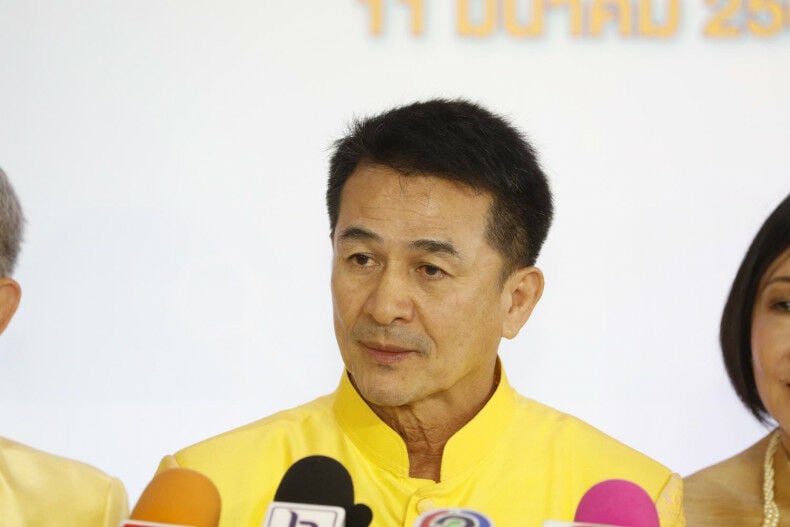Thai government considers recriminalising cannabis

Thai Public Health Minister Cholnan Srikaew conveyed his apprehension about the general public’s disagreement with the Pheu Thai Party’s plan to criminalise cannabis once again.
This apprehension arose following Prime Minister Srettha Thavisin’s recent interview with France 24, a French state-owned news channel, where he revealed the government’s intent to control cannabis use, which has been decriminalised since 2022.
In the interview, PM Srettha alluded to the negative impact of cannabis legalisation on the Thai economy. Many interpreted this as his support for reclassifying cannabis as a narcotic.
Cholnan provided clarification for the Bangkok-born PM’s statement.
“The premier’s perspective is based on the government’s clear statement in parliament that cannabis will only be used for medical purposes, with implications for the economy.”
Presently, only products with more than 0.2% THC (tetrahydrocannabinol – the primary psychoactive component of cannabis) by weight are deemed illegal.
To reclassify cannabis as an illegal substance, the public health ministerial announcement would need to be revamped. This could have far-reaching consequences, as it would necessitate clearing the deck considering the existing ministerial regulations.
Non-medical cannabis
Cholnan clarified that the non-medical use of the plant’s flower buds and cannabis extract, which contain a high degree of THC, is illegal. Cultivating cannabis requires official permission.
He noted that consumption of the buds for recreational purposes violates the law. He added that cannabis dispensaries offering cannabis for recreational use could potentially be violating the cannabis regulations, despite being protected under the Thai traditional medicine law.
The ministry has already prepared a draft law regarding cannabis control, which is currently under the consideration of the Council of State, the government’s legal arm. After this, it will be submitted to parliament.
“The decisions about cannabis ultimately rest with the premier.”
In the meantime, Deputy Prime Minister Somsak Thepsutin urged the government to hasten the process of issuing the cannabis control law, as the law governing kratom plants is already in effect.
Somsak attended a meeting with relevant agencies on Monday to discuss kratom and other medicinal herbs, which collectively contribute up to four billion baht per year to the economy on average.
However, he estimated that the economic gains could increase to tens of billions of baht if the law on cannabis control is passed.
While the cannabis law, expected to be presented to parliament for review after being accepted in its initial reading soon, is not yet in force, the use of the plant for medical purposes is facilitated by public health regulations and the medicinal herb law, reported Bangkok Post.
However, Somsak pointed out that these laws do not adequately cover all cannabis use cases.
Latest Thailand News
Follow The Thaiger on Google News:


























